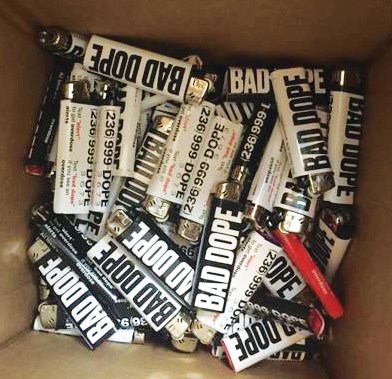Vancouver Coastal Health (VCH) and the BC Centre for Disease Control have launched a program that will give drug users and health workers real-time information about clusters of drug overdoses and potentially contaminated drugs.
The Real-time Drug Alert & Response (RADAR) project involves an online reporting form at www.vch.ca/overdose and a text service: 236-999-DOPE (3673).
“Vancouver Coastal’s pilot project will give medical health officers access to what’s happening when it’s happening,” said provincial health officer Perry Kendall in a release announcing the project launch.
“This real-time information will help them decide and put into place an immediate course of action to prevent overdoses.”
Dr. Mark Lysyshyn is a medical health officer at VCH and the regional lead for harm reduction and substance use with the health authority. He said, at its core, the idea behind RADAR is to get information to the people who need it in a less formal and potentially more useful way.
“Sometimes it might be information that’s more relevant to the user, like what colour the drug was or what kind of picture was stamped onto the pill, things like that,” Lysyshyn said.
“We’ll be working with the people and programs that deliver our harm reduction supplies, the people who work with people who use drugs… This is just a different way to get information at the point of use,” he said, adding that it’s also another opportunity for outreach workers to offer the key harm reduction advice such as not using alone, using small amounts, and ensuring a naloxone kit is available if needed.
Lysyshyn also said that while the program is starting out targeted toward people who are in contact with outreach workers and using harm reduction supplies or programs, it could turn out that recreational users are the ones who take advantage of the alerts and file reports most often.
The May VCH statistics show 40 overdoses reported at Sechelt Hospital since Jan. 1, eight of them in May, and around half of them have been opioid related. Overdose cases that aren’t treated at the hospital don’t get reflected in those statistics.
Sunshine Coast medical health officer Dr. Paul Martiquet told Coast Reporter in early June that the Coroners Service is investigating two deaths this year in which opioid OD is suspected. He said this week that those investigations are still in progress.



